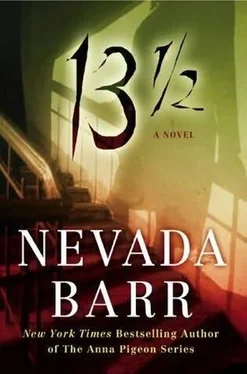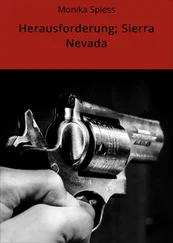That Peterson did such a bad job of it is the best I can say of him. I believe the slaying of his wife and unborn child destroyed him from within, and because of that, he bungled it, was captured, and sentenced to death. I would hope my fiction would not demand such a price should it be threatened.
Harsh sun highlighted fine lines in Polly’s face, invisible even two weeks before-the velvet glove of autumn over the iron fist of summer. Glare forced her to narrow her eyes and the heat pressed down. She should have worn a hat.
Any southern woman with an ounce of good Christian vanity should wear a hat, she thought absently.
Tilting her head back so tears would not spill over her lower lids, she pushed back on the bench deeper into shade of Jackson Square ’s live oaks and let the disquiet blossom into a frisson of true fear.
The things that terrorize are those you don’t see coming.
The unexpected. “That which we must embrace,” the tarot reader had said. Or endure. The sixth card in the Celtic Cross, that which is to come.
“That which we cannot find,” Polly murmured aloud.
“You talkin’ to me?”
A young, African American man had joined her on the bench. Sandwich held suspended halfway to his mouth, he looked at her with concern. The tears, though unshed, must have shown. Polly was sorry for that. Not that tears weren’t a perfectly good expression of emotion-or means to an end-but to lose control was unseemly. And usually ineffective.
“I have been trying to find one of the tarot readers,” she said. “A generously constructed woman: red hair, red dress, red nails, red lipstick.”
“Sounds like the fire truck,” the man noted and took a bite.
“Ye-ess,” Polly said, making two syllables of the word. “A siren at any rate. She certainly got one’s attention.”
“I pretty much know the regulars.” The sandwich had gone in three bites. He wadded up the paper and tossed it expertly into the trash barrel several yards away. Polly made no comment. He was sufficiently pleased with himself, she needn’t add a thing. “Haven’t seen her in a while.” He stood to go. “Try the readers. They’d know better than me.”
Though she had promised herself she wouldn’t, Polly opened her handbag and took out a white unsealed envelope. She pulled out a card, pinching it fastidiously between the tip of her index finger and thumb, lest its inherent filth come off on her hands. The envelope wasn’t there to protect the card from the elements, but the elements from the card. Or the inside of her bag, at any rate.
Slightly smaller than a standard postcard, it was not of a size the post office would usually deliver, but this was New Orleans and, despite Katrina, the city’s tradition of aiding and abetting human idiosyncrasies survived.
Polly did not doubt where it came from. It was from the Rider-Waite tarot deck, worn and darkened by handling with unclean hands, the edges frayed from use. Had Polly access to criminal forensic laboratories she would have bet the red seeress’s DNA would be all over it. It was the ugliest of the cards, suggesting the true evil that inhabited the world. The Devil was a squat, potbellied satyr with ears that grew into hairy points and a skull sprouting rams’ horns. The wings of a bat sprung from his shoulders; the talons of a bird of prey took the place of hooves. Chained at his feet were the naked figures of a man and a woman.
Symbolic rather than literal, the Devil had many meanings: bondage, addiction, greed, obsession, lies, betrayal. Unlike other cards in the tarot, none of the meanings were auspicious. Only the Devil’s placement in the layout could ameliorate his dark presence.
Polly’s card had had a special placement. She’d found it in her mailbox. On the back of it, printed across the faded, dirty, white-and-blue checks, was the Marchand address and a stamp. On the face, scrawled across the Devil’s genitals in what looked like red nail lacquer, were the words, “Help me.”
There was no return address.
Handling it as if it had been dusted with anthrax, Polly returned the card to its envelope. Fear and anger coalesced into hard tears in the corners of her eyes. If this keeps up, I must begin to wear waterproof mascara, she mocked herself.
She’d received the card several days before and had done nothing, told no one, shown it to no one, not even Marshall. He was acting so strangely, she had no desire to exacerbate matters by showing him the Devil in all his naked glory.
A sensible woman would have consigned it to the garbage, but it was contrary to her nature to ignore a plea for help from even the least savory of supplicants. There had been a time when she, as had Blanche Dubois, relied upon the kindness of strangers.
The card readers huddled under the meager shade of their ratty umbrellas talking desultorily among themselves. Only one of the six tables had a client. Tourists were not as likely to want to see their future in the stark light of day as they were on romantic evenings, when all things seemed possible.
Polly started at the corner of St. Ann ’s and the square. A man, grizzled and looking as if he’d slept in his clothes not just the previous night but for many nights over many years, listened to her description.
“For twenty bucks, I’ll read your palm. It’s all written there,” he said cagily.
Polly moved on to the next umbrella where a rail-thin woman, her skin so damaged by years in the sun that it was impossible to determine her age, sat on a metal folding chair, a cooler beside her, an aging dachshund on her bony lap. A teal evening dress, half the spangles gone from the bodice, hung off her bones by spaghetti straps. One had broken and been patched with an oversized safety pin. Her long, narrow feet were encased in stiletto heels, the black rubbed off the sides and backs.
She looked as if, twenty years ago, she’d had one hell of a night on the town and, come morning, could not find her way home. The dog and the woman’s genuine smile encouraged Polly. She sat in the other folding chair. Smarter by one rejection, and feeling compassion for the old dog and the dachshund on her lap, she took out a ten-dollar bill and laid it on the table.
“All I want is information,” she said.
“That-and love-is all any woman needs,” the reader said, catching up the bill and folding it neatly into a plastic purse. “For ten dollars I can give you both. What a deal, huh? My name is Emily.” Her voice and her smile were so full of kindness that Polly laughed and felt better for it. She described the woman she sought and waited.
“Red,” Emily said immediately. “The Woman in Red-that’s what she likes to be called. Forty years and forty pounds ago it might have caught on. Now, well… She can’t help it, bless her heart.”
Polly smiled. In the South, one could say anything and, if it was followed by that incantation, the sayer was freed from the stigma of speaking ill of others.
“Do you know her real name?”
“Most of us can’t even remember our own real names, let alone anybody else’s, hon. Red has worked the square for years. She’s here almost every day, but I haven’t seen her for a week or so.”
“Do you know where she lives?”
Emily gave an enigmatic smile.
“I’m not with law enforcement or anything of the kind,” Polly blurted out and was mildly offended when Emily laughed, as if that were patently obvious. “Here.” Polly pulled the envelope from her purse and took out the card. “I got this in the mail. I think it’s from her. She may be in some kind of trouble.”
Emily shifted the dog and leaned in to look. Like Polly, she seemed to have an innate aversion to touching it. “The Devil,” she said.
Читать дальше












